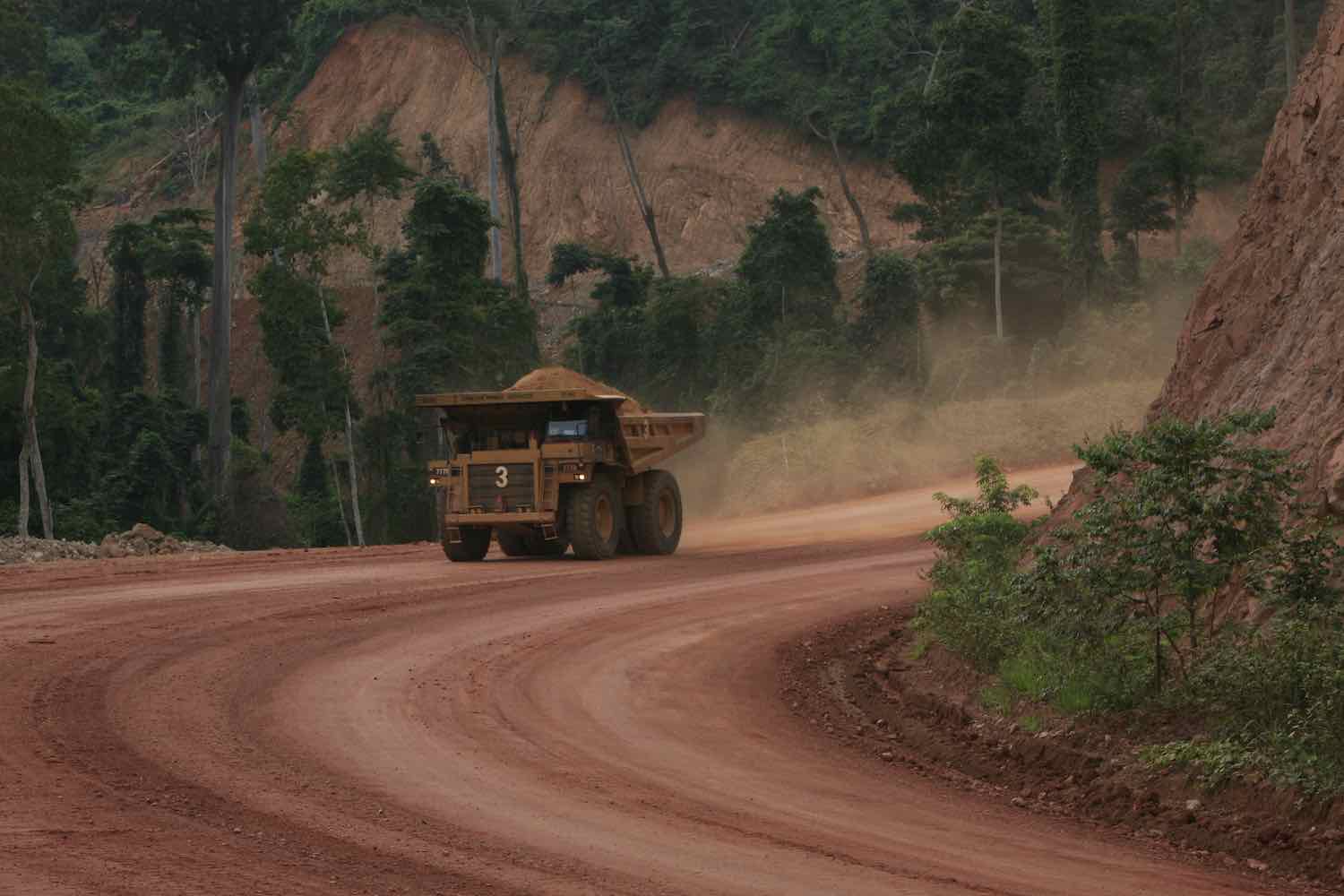
Unsealed roads are part of the remote Australian landscape. They are the essential arteries and veins that keep people in bush settlements and on projects connected – beyond the black stump.
Paving a roadway is often out of the question when vast distances need to be covered. They’re too expensive, too hard to maintain properly and often unsuitable for heavy equipment. (It’s why you don’t see a tracked D11 dozer trundling down the sealed main street of town.)
But while unsealed roads offer the best all-around solution for rugged applications in the outback, they also have natural drawbacks.One of those is dust pollution and its effects on people and the surrounding environment.
When the weather is dry, as it often is in the middle of Australia, dust suppression becomes a significant issue that’s tricky to solve.
But thanks to modern dust suppression technology, we are on the right track and can see a way forward.
Before paved surfaces made of asphalt and concrete came along, all we had were humble dirt roads. (We don’t see too many cobblestoned ones around anymore.)
Generally considered a road with a natural or semi-natural surface like dirt, gravel, or crushed rock, unsealed roads often require lower speed limits and are more exposed to the elements that cause erosion.
Unsealed roads come in a few different classifications, but the major ones include the following:
Dirt roads: The most basic type of unsealed road, often found in rural and remote areas.
Gravel roads: Gravel roads are more durable than ‘just dirt’ and can handle heavier traffic. On the flip side, they are more expensive to build and maintain.
Unsealed tracks: These are narrow paths or trails often used by off-road vehicles, hikers or livestock. Materials include soil, gravel, and even grass.
Sand tracks: Found in desert areas or coastal regions (obviously) and often used by off-road vehicles. Challenging to navigate due to shifting sands.
Corrugated roads: Unsealed roads with washboard-like surfaces due to repeated traffic and a lack of maintenance. Damaging to vehicles and their suspension systems.
Earth roads: Road surfaces made of compacted earth or clay; relatively smooth and durable but muddy and impassable in wet weather.
As outlined above, unpaved driving surfaces introduce certain risks to people, vehicles and the environment.
The obvious ones are the risk of accidents and vehicle damage, while another is a little harder to grasp.
In the remote outback, sometimes the best way to look for a roadway or another vehicle is to look to the sky.
Dust clouds get kicked up in great plumes from behind vehicles on unsealed roads and can often be seen from miles away, rising and shifting with the breeze.
This is dust pollution, and it’s a growing issue in remote work zones around the world.
And when water is scarce, as it is in remote Australia, dust can be hard to control.
GRT: Haul-Loc is GRT’s game-changing dust control polymer that reduces water consumption on unsealed roads by at least 65%.
Haul Loc is used worldwide on mining roads, hardstands, cleared sites, stockpiles, and where environmental management is critical.
Designed to save you money while improving health and safety, Haul Loc reduces water cart movements and water consumption, adding up to $1.2 million in savings per water truck, per year.
Combined with GRT’s automated SMART Dosing Units, Haul Loc can provide your site with vast, proven improvements in dust control, water consumption and safety.
A SMART Dosing Ubit will also provide valuable data feedback – via the IoT – to help optimise and manage your site-wide operations.
Discover Halu Loc’s real benefits for miners in our Case Study!
Your feedback is important to us. If you enjoyed reading this Global Road Technology industry update and found it informative, please let us know by leaving a REVIEW.
Are environmental regulations, health and safety concerns or potential profit loss a concern right now?
Contact Us Now